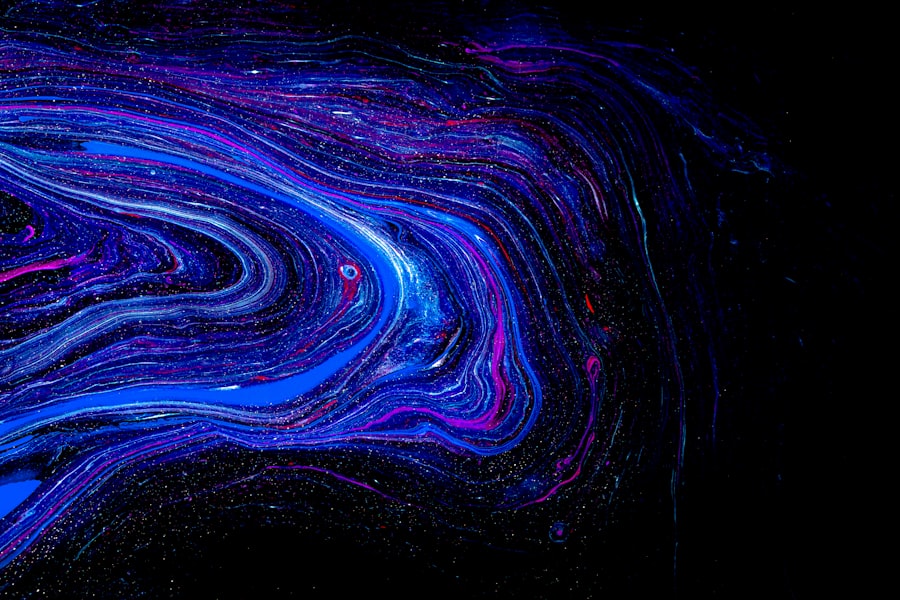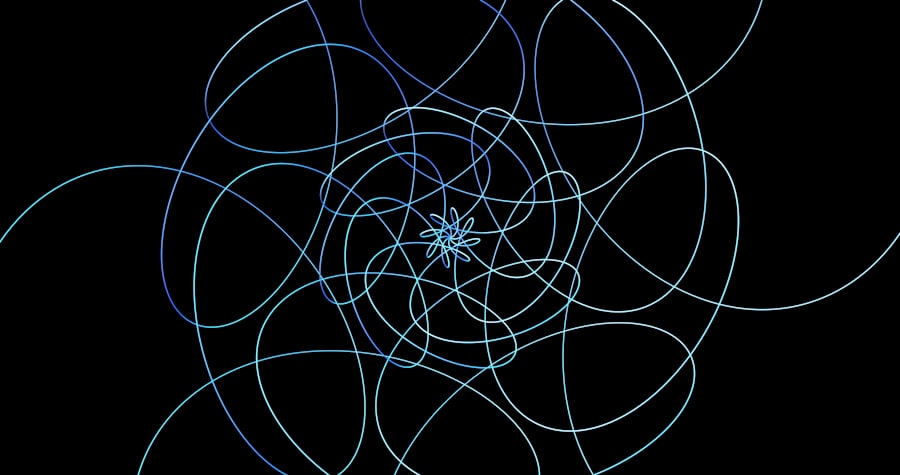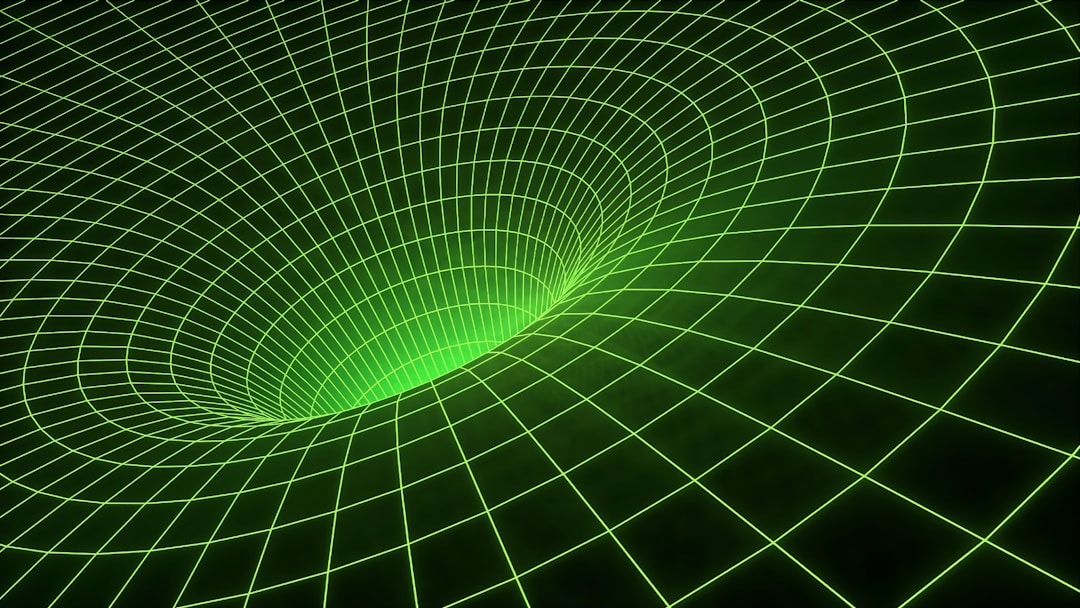Quantum mechanics, a branch of physics that delves into the behavior of matter and energy at the smallest scales, has long fascinated scientists and philosophers alike. Its principles challenge conventional notions of reality, suggesting that particles can exist in multiple states simultaneously and can be interconnected in ways that defy classical logic. This enigmatic field has sparked a myriad of interpretations and theories, particularly regarding its implications for consciousness.
The intersection of quantum mechanics and consciousness raises profound questions about the nature of awareness, perception, and the very fabric of reality itself. Consciousness, often described as the state of being aware of and able to think about one’s own existence, thoughts, and surroundings, remains one of the most elusive subjects in both science and philosophy. While neuroscience has made significant strides in mapping the brain’s functions and understanding cognitive processes, the fundamental nature of consciousness continues to elude definitive explanation.
The exploration of quantum mechanics offers a unique lens through which to examine consciousness, suggesting that the two may be intricately linked in ways that could reshape our understanding of both.
Key Takeaways
- Quantum mechanics offers novel frameworks for exploring the nature of consciousness beyond classical physics.
- Phenomena like quantum entanglement and superposition suggest interconnectedness and multiple states in conscious experience.
- Quantum coherence and tunneling may play roles in brain processes underlying consciousness.
- The measurement problem and decoherence highlight challenges in linking quantum states to conscious observation.
- Advances in quantum computing could provide new tools to model and understand consciousness in the future.
The Role of Quantum Mechanics in Understanding Consciousness
The role of quantum mechanics in understanding consciousness is a topic that has garnered increasing attention in recent years. Some theorists propose that quantum processes may underlie the workings of the brain, influencing how thoughts and perceptions arise. This perspective posits that consciousness is not merely a byproduct of neural activity but may involve quantum phenomena that contribute to the richness of human experience.
By examining the brain through the lens of quantum mechanics, researchers hope to uncover new insights into how consciousness emerges from complex biological systems. One prominent theory in this realm is the idea that quantum effects could play a crucial role in cognitive functions such as decision-making and creativity. For instance, the concept of superposition—where particles exist in multiple states at once—might parallel how the brain processes information, allowing for a multitude of potential outcomes before a decision is made.
This suggests that consciousness could be more than just a linear progression of thoughts; it may involve a dynamic interplay of possibilities that are resolved into coherent experiences.
Quantum Entanglement and its Connection to Consciousness

Quantum entanglement, a phenomenon where particles become interconnected in such a way that the state of one instantly influences the state of another, regardless of distance, has profound implications for understanding consciousness. Some theorists speculate that entanglement could provide a framework for understanding how individuals experience shared consciousness or collective awareness. This notion raises intriguing questions about the nature of interpersonal connections and the potential for a collective consciousness that transcends individual experiences.
The implications of entanglement extend beyond mere speculation; they challenge traditional views on individuality and separateness. If consciousness can be influenced by entangled states, it suggests that human beings may be more interconnected than previously thought. This interconnectedness could offer insights into phenomena such as empathy, intuition, and even telepathy, suggesting that our conscious experiences might be part of a larger tapestry woven together by quantum connections.
Quantum Superposition and its Implications for Consciousness
| Aspect | Description | Metric/Value | Implication for Consciousness |
|---|---|---|---|
| Quantum Superposition | Ability of a quantum system to be in multiple states simultaneously | State vector: |ψ⟩ = α|0⟩ + β|1⟩ (α, β complex amplitudes) | Suggests consciousness could involve simultaneous processing of multiple states |
| Decoherence Time | Time scale over which quantum coherence is lost due to environment interaction | Typically 10^-13 to 10^-3 seconds in biological systems | Limits duration quantum effects can influence neural processes |
| Quantum Entanglement | Non-local correlation between quantum states of particles | Measured by entanglement entropy or concurrence (0 to 1 scale) | Potential mechanism for integrated information in consciousness |
| Orchestrated Objective Reduction (Orch-OR) Theory | Proposed model linking quantum superposition in microtubules to consciousness | Collapse time ~ 25 milliseconds (brain wave frequency ~40 Hz) | Suggests quantum events correlate with conscious moments |
| Brain Temperature | Physiological factor affecting quantum coherence | Approx. 37°C (310 K) | High temperature challenges maintenance of quantum states |
| Quantum Coherence Length | Spatial extent over which quantum coherence is maintained | Estimated nanometer scale in neurons | Determines scale of quantum processing in brain structures |
Quantum superposition presents another fascinating avenue for exploring consciousness. In quantum mechanics, particles can exist in multiple states simultaneously until measured or observed, at which point they collapse into a single state. This principle raises compelling questions about how consciousness interacts with reality.
Some theorists propose that human awareness itself may function similarly to superposition, allowing individuals to hold multiple perspectives or possibilities in their minds before arriving at a definitive conclusion. The implications of superposition for consciousness extend to creativity and problem-solving. When individuals engage in creative thinking, they often explore various ideas and concepts before settling on a final product.
This process mirrors the quantum notion of superposition, where multiple potential outcomes coexist until one is chosen. By understanding consciousness through this lens, researchers may uncover new strategies for enhancing creativity and cognitive flexibility, ultimately leading to richer human experiences.
Quantum Tunneling and Consciousness
Quantum tunneling is another phenomenon that offers intriguing insights into consciousness. In classical physics, particles are confined to specific energy levels; however, quantum mechanics allows particles to “tunnel” through barriers that would otherwise be insurmountable. This concept can be metaphorically applied to human cognition, suggesting that individuals may have the capacity to transcend mental barriers or limitations through creative thought processes.
The idea of tunneling resonates with experiences such as sudden insights or “aha” moments when solutions to problems seem to emerge from nowhere. These moments may reflect a form of cognitive tunneling, where individuals bypass conventional thought patterns to arrive at innovative solutions. By exploring the parallels between quantum tunneling and cognitive processes, researchers may gain valuable insights into how individuals can enhance their problem-solving abilities and foster creativity.
Quantum Coherence and its Relationship to Consciousness

Quantum coherence refers to the phenomenon where particles maintain a consistent phase relationship with one another, allowing them to exhibit collective behavior. This concept has intriguing implications for understanding consciousness as a coherent state rather than a disjointed collection of thoughts and perceptions.
The relationship between coherence and consciousness raises questions about the nature of awareness itself. If consciousness is indeed a coherent state, it suggests that individuals may have the potential to tap into deeper levels of awareness through practices such as meditation or mindfulness. These practices could enhance coherence within the brain, leading to heightened states of consciousness and greater clarity in thought processes.
The Measurement Problem in Quantum Mechanics and Consciousness
The measurement problem in quantum mechanics poses significant philosophical questions about observation and reality. In essence, it highlights the paradox that particles exist in multiple states until they are measured or observed, at which point they collapse into a single state. This dilemma raises intriguing parallels with consciousness: does awareness itself play a role in shaping reality?
Some theorists propose that consciousness may be an active participant in the measurement process, influencing how reality is perceived. This perspective challenges traditional notions of objectivity and suggests that subjective experience is integral to understanding reality. If consciousness influences measurement outcomes, it implies that individual perceptions shape the world around them.
This notion invites further exploration into how personal beliefs, emotions, and intentions might impact not only individual experiences but also collective realities.
Quantum Decoherence and its Impact on Consciousness
Quantum decoherence refers to the process by which quantum systems lose their coherent behavior due to interactions with their environment. This phenomenon has significant implications for understanding consciousness as it suggests that external factors can influence cognitive processes. As systems become entangled with their surroundings, they may lose their ability to maintain coherent states, leading to fragmented experiences.
The impact of decoherence on consciousness raises questions about how external stimuli shape individual awareness. In an increasingly complex world filled with distractions and information overload, understanding how decoherence affects cognitive coherence could provide valuable insights into mental health and well-being. By recognizing the factors that contribute to decoherence in consciousness, individuals may develop strategies to cultivate greater focus and clarity in their lives.
The Quantum Brain Hypothesis and Consciousness
The Quantum Brain Hypothesis posits that quantum processes play a fundamental role in brain function and consciousness. Proponents argue that certain cognitive phenomena—such as creativity, intuition, and decision-making—may be better understood through quantum mechanics than classical neuroscience alone. This hypothesis invites researchers to explore how quantum effects might manifest within neural networks and contribute to conscious experience.
While still a controversial area of study, the Quantum Brain Hypothesis encourages interdisciplinary collaboration between physicists, neuroscientists, and philosophers. By integrating insights from these diverse fields, researchers may uncover new dimensions of consciousness that transcend traditional boundaries. This collaborative approach could lead to groundbreaking discoveries about the nature of awareness and its relationship with the physical world.
Quantum Computing and its Potential Insights into Consciousness
Quantum computing represents a revolutionary advancement in technology that harnesses the principles of quantum mechanics to process information in fundamentally different ways than classical computers. As researchers explore the potential applications of quantum computing, they are also beginning to consider its implications for understanding consciousness. The ability of quantum computers to perform complex calculations simultaneously could provide new insights into cognitive processes and decision-making.
By simulating quantum phenomena within computational models, researchers may gain valuable insights into how consciousness operates at both individual and collective levels. Quantum computing could enable scientists to explore intricate patterns within neural networks, potentially revealing underlying mechanisms that contribute to conscious experience. As this technology continues to evolve, it holds promise for unlocking new dimensions of understanding regarding the nature of awareness.
The Future of Quantum Mechanics in Understanding Consciousness
The future of quantum mechanics in understanding consciousness is filled with potential for groundbreaking discoveries and transformative insights. As researchers continue to explore the intricate connections between these two fields, they are likely to uncover new paradigms that challenge existing beliefs about reality and awareness. The ongoing dialogue between physicists and neuroscientists will be crucial in shaping this exploration.
As technology advances and our understanding deepens, it is conceivable that new frameworks will emerge that integrate quantum principles with cognitive science. This interdisciplinary approach could lead to innovative therapies for mental health issues, enhanced cognitive performance, and even deeper explorations into the nature of existence itself. Ultimately, the journey toward understanding consciousness through the lens of quantum mechanics promises to reshape not only scientific inquiry but also humanity’s fundamental understanding of itself within the cosmos.
In exploring the intriguing relationship between quantum mechanics and consciousness, one can refer to a thought-provoking article that delves into the implications of quantum theory on our understanding of the mind. This article discusses various interpretations of quantum mechanics and how they might relate to consciousness, offering insights that challenge conventional views. For more information, you can read the article [here](https://www.
com/sample-page/).
WATCH THIS! The Future Is Already Written: Why Physics Says Time Is a Lie
FAQs
What is quantum mechanics?
Quantum mechanics is a fundamental theory in physics that describes the behavior of matter and energy at the smallest scales, such as atoms and subatomic particles. It explains phenomena that cannot be accounted for by classical physics, including wave-particle duality, superposition, and entanglement.
What is consciousness?
Consciousness refers to the state of being aware of and able to think about oneself, the environment, and experiences. It encompasses aspects such as perception, self-awareness, and the ability to experience sensations and thoughts.
How are quantum mechanics and consciousness related?
The relationship between quantum mechanics and consciousness is a topic of ongoing debate and research. Some theories propose that quantum processes in the brain may play a role in consciousness, but there is no scientific consensus or definitive evidence supporting this connection.
What is the “quantum mind” hypothesis?
The “quantum mind” hypothesis suggests that quantum phenomena, such as superposition and entanglement, could be involved in cognitive functions and consciousness. Proponents argue that classical physics alone cannot fully explain consciousness, but this idea remains speculative and controversial.
Are there any scientific experiments linking quantum mechanics to consciousness?
Currently, there are no widely accepted scientific experiments that conclusively link quantum mechanics to consciousness. Research in this area is largely theoretical, and experimental verification is challenging due to the complexity of both quantum systems and brain processes.
Why is the connection between quantum mechanics and consciousness controversial?
The controversy arises because quantum mechanics operates at microscopic scales, while consciousness emerges from complex biological systems at macroscopic scales. Additionally, many interpretations of quantum mechanics do not require consciousness to explain physical phenomena, making the proposed link speculative.
Can quantum mechanics explain the nature of consciousness?
As of now, quantum mechanics does not provide a comprehensive explanation for consciousness. While some theories explore potential connections, mainstream neuroscience and cognitive science primarily study consciousness through classical biological and psychological frameworks.
What are some alternative scientific approaches to studying consciousness?
Alternative approaches include neuroscience, cognitive psychology, and computational modeling. These fields investigate brain activity, neural networks, and information processing to understand how consciousness arises without invoking quantum mechanics.
Is consciousness necessary to collapse a quantum wavefunction?
The idea that consciousness causes the collapse of a quantum wavefunction is a philosophical interpretation known as the “consciousness causes collapse” hypothesis. It is not universally accepted and remains a subject of debate among physicists and philosophers.
Where can I learn more about quantum mechanics and consciousness?
To learn more, consider reading scientific literature, textbooks on quantum physics and neuroscience, and reputable sources such as academic journals and university courses. Popular science books and lectures by experts can also provide accessible introductions to these topics.
